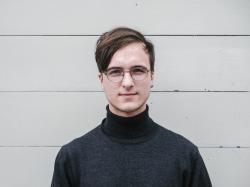“I truly believe that the arts are the most powerful tool to celebrate humanity and to sustain and create peace on earth. That’s why I have devoted my entire career to the arts,” says Vigdís Jakobsdóttir, the new director and CEO of the Reykjavík Arts Festival.
It’s clear that art is Vigdís’s passion. She’s a theatre director who has long focused on training artists to become teachers of their craft. Having worked at the Icelandic Arts Academy and the National Theatre for many years, she’s also the founder of two theatre festivals directed at young audiences—“Ungi” and “Þjóðleikur”.
“I’d been teaching at the Arts Academy for a long time, and I had actually already taken steps to reduce my teaching hours there,” she says. “A friend suggested I should apply for the position as artistic director of the Reykjavik Arts Festival. Now I’ve been in this role for one and a half years. I feel that this was so right for me at this time in my career.”
A new vision
The festival shows a wide range of different art forms, from dance to exhibitions and from music concerts to large-scale performances. Vigdís plans to broaden the festival’s appeal to an audience outside the 101 postcode via a larger family programme, more free events, and a revived festival hub at the Reykjavik Arts Museum.
“We’ll have a pop-up bar that will have three to four events every single day,“ she explains. “You can always come there and get involved, even if you don’t have money or you don’t know what this is about and you’re just curious. The festival hub will be buzzing with all sorts of events; artists talks, happenings, music, and DJs from lunchtime to eleven at night.”

A new home
“Home” is the theme of the 2018 festival, and many of the performances are connected around the concept. “The challenge is to find things that have value for all the different types of the people of Reykjavík, including its guests,” she explains. “Home is a good theme for that—it’s is a positive word, but it carries with it its opposite of homelessness or rootlessness also.”
Vigdís says the concept of home is changing. “People are moving around the world much more—for good and bad reasons,” she continues. “For many privileged young people feel they can belong anywhere. But the theme is also something much more philosophical. Human connection and creating art can give you the feeling of home, too.”
A reminder
The notions of representation, shared context, and reaching out to as many people as possible are deeply rooted in Vigdís’s perception of art. “The Reykjavík Arts Festival should serve as a reminder of art being a humanitarian, peacemaking tool to other cultural institutions as well,” she finishes. “Part of the reason we’re here is to remind everyone about the role of the arts in the community, and to celebrate that role.”
Reykjavík Arts Festival takes place 1st-17th June in various venues. Find out more at artfest.is.
Buy subscriptions, t-shirts and more from our shop right here!


















